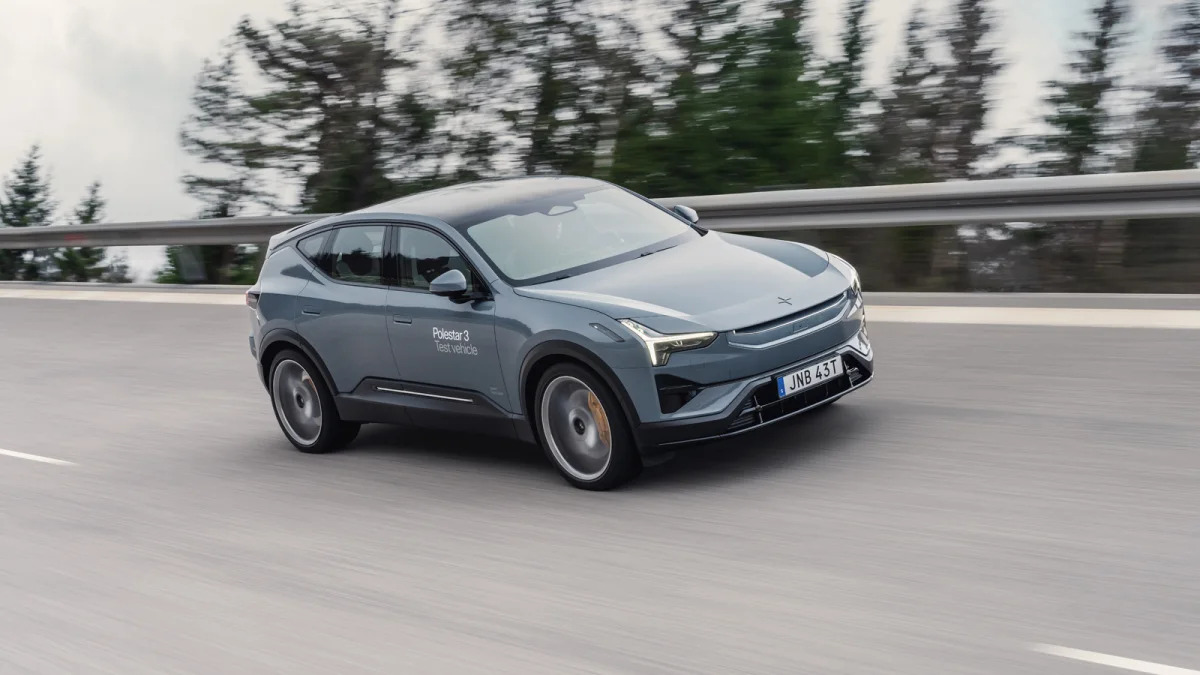GOTHENBURG, Sweden — The cooling electric-car market is sending ripples across the industry, especially in the United States where a law banning the sale of new vehicles powered by an internal-combustion engine hasn't been passed — no one's making you buy an EV, at least not yet. Carmakers are shifting their future plans to take slowing EV sales into account, and hybrid technology is beginning to look more like an ideal middle ground, rather than a stepping stone at best and a flawed compromise at worst. Polestar, which only sells EVs and plans to roll out more in the coming years, isn't worried about this trend.
"I know that there is a lot of talk about the EV market slowing down, yes, but this is still the growing market," Polestar boss Thomas Ingenlath told me in the company's Gothenburg, Sweden, design studio. "This is where we should not get it wrong. Yes, from the hype and the cheers and the 'everything is rosy' [attitude] there is now a little bit more realism to it, and the speed [of the transition] might not be as fast as some people might have expected, but it is still the growing segment. Electrification will be happening; there is no doubt about it."
Polestar remains on track to expand its range in the coming years, and every model in its pipeline runs on electricity. After giving the 2 a round of major updates for 2024, it will launch an SUV called 3 and a funky, fastback-like crossover named Polestar 4 due out by the end of 2024. The 5, a big sedan aimed at the Porsche Taycan, and a sports car called 6 will round out the lineup in the second half of the 2020s.
It helps that Polestar competes in a niche; it aims to gradually increase its annual sales, but it's not planning on challenging the Ford F-150's sales crown or brawling against Toyota for dominance of the global car market. Ingenlath also argued that, in a way, the uncertainty regarding the take rate of electric cars gives Polestar an advantage — at least in consistency — while putting its rivals at a disadvantage.
"You asked me how I feel about it: I feel energized. I actually don't even mind OEMs going into that 'oh, maybe' [phase] because it gives us an advantage. For us, it's clear, and we can concentrate on that. I would not like necessarily to be in that difficult position where you have that mixed portfolio and you have to really consider what to do as a next step. I don't envy [other OEMs] for that position. It's not easy."
And yet, Polestar could realistically launch a hybrid model if it wanted to. The brand's first car, a shapely, limited-edition coupe called Polestar 1, was powered by a 619-horsepower plug-in hybrid drivetrain that assigned a supercharged and turbocharged 2.0-liter four-cylinder engine to the front wheels and a pair of electric motors to the rear wheels. Polestar is part of China-based Geely, which also owns Volvo, so theoretically nothing would stop it from knocking on its sister company's door, politely asking for a plug-in hybrid system, and walking back home with it.
Would it? Maybe, but probably not.
"I would not say, 'Oh no, we would not consider [a hybrid].' I'm not dogmatic about this," Ingenlath said. "I'm convinced how much an electric car is a great car, and I want the car to feel like it. I think we have to see. I never want to build a brand around one technology. It might be that, in 10 years, there's a great new invention which is different, and then we'll do that. But, on the other hand, we have to be realistic and tell the consumer what they should put their money down on, and I think a battery-electric car is at the moment the best technology."










Sign in to post
Please sign in to leave a comment.
Continue